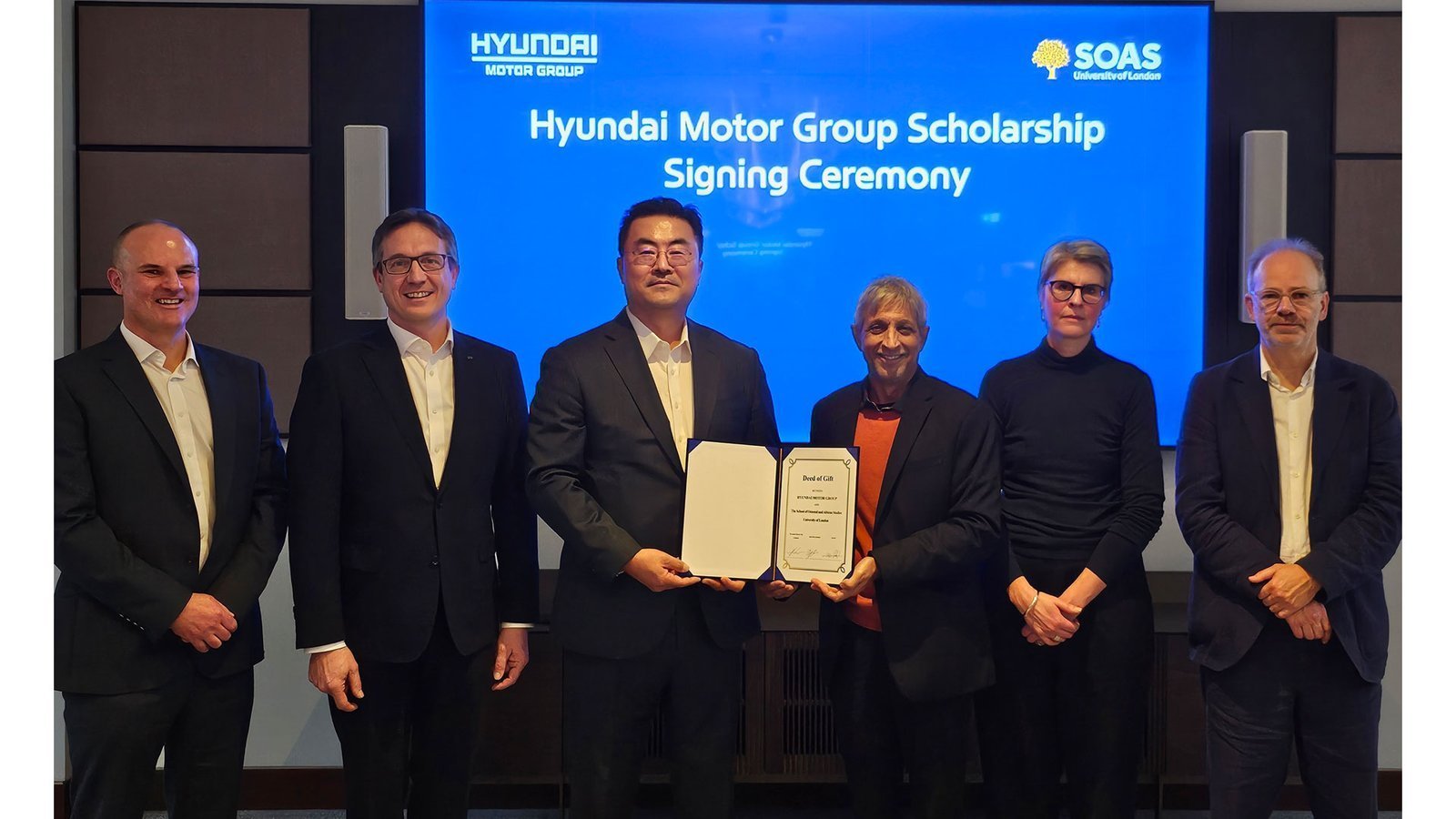What is the Queen Elizabeth Commonwealth Scholarship (QECS)?
The Queen Elizabeth Commonwealth Scholarships (QECS) offer a once-in-a-lifetime opportunity for students from low and middle-income Commonwealth countries to pursue a fully-funded Master’s degree in another Commonwealth nation. These scholarships are meant for individuals committed to making a difference in their communities, using their education to drive positive change globally and locally.
Vision and Purpose of QECS
The QECS aims to strengthen the Commonwealth community through education, cultural exchange, and leadership development. The program seeks to empower students to be agents of transformation by providing them with high-quality education and an international learning experience.
Why This Scholarship Is Life-Changing
Imagine earning a world-class degree abroad without financial burden, immersing yourself in a new culture, and building a global network of scholars. The QECS offers not just funding, but a journey of academic excellence, personal growth, and social impact.
Overview of QECS 2026 Programme
Countries Eligible for Study
Students can study in any eligible low or middle-income Commonwealth country other than their home country. These often include nations in Africa, Asia, the Caribbean, and the Pacific.
Number of Scholarships Offered
While the number varies each year, typically 30 to 60 scholarships are awarded depending on available funds and participating institutions.
Fields of Study Supported
The QECS supports a wide range of disciplines based on what is offered at the host universities — from science and technology to humanities and health sciences.
Duration of the Programme
Most QECS-funded programs last 12 to 24 months, depending on the academic calendar and structure of the host university.
Benefits of QECS
Full Tuition Fees
The QECS covers 100% of tuition fees for the entire duration of the Master’s program.
Living Allowance (Stipend)
Recipients receive a monthly stipend to cover living expenses such as accommodation, food, transport, and personal needs.
Return Economy Flights
Round-trip economy-class airfare from the scholar’s home country to the host country is provided.
Research Support Grant (If Applicable)
For research-intensive programs, scholars can access additional funding to support thesis research or fieldwork.
Exposure to Diverse Cultures
Studying in a different country means exposure to new cultures, traditions, and academic environments. This enriches the scholar’s worldview and adaptability.
Eligible Host Countries and Partner Universities
Africa
-
University of Ghana, Ghana
-
University of Nairobi, Kenya
-
University of Pretoria, South Africa
-
University of Mauritius
Asia
-
University of Dhaka, Bangladesh
-
University of Peradeniya, Sri Lanka
-
Universiti Putra Malaysia
-
COMSATS University, Pakistan
Caribbean
-
University of the West Indies (UWI), Barbados
-
University of the West Indies (UWI), Trinidad and Tobago
Note: Each university may offer only selected Master’s programs under the QECS.
Academic Disciplines Covered
-
Science and Technology: ICT, Engineering, Data Science
-
STEM: Mathematics, Physics, Chemistry
-
Health and Medicine: Public Health, Nursing, Epidemiology
-
Environmental Studies: Climate Change, Renewable Energy, Ecology
-
Social Sciences and Humanities: Development Studies, Political Science, Education, Economics
Who Can Apply?
Eligibility by Nationality
-
Must be a citizen or refugee of a Commonwealth country
-
Must not be a citizen of the host country
Academic Qualification
-
Must have an undergraduate degree (at least Second Class Upper or equivalent)
Age and Work Experience
-
No strict age limit, but preference is often given to early-career professionals
-
Relevant work experience is a plus, especially for development-related fields
Language Proficiency
-
English is the main language of instruction. Some universities may require IELTS or TOEFL (check specific institution requirements)
How to Apply for QECS 2026
Step-by-Step Application Process
-
Visit the official QECS portal: https://www.acu.ac.uk/funding/qecs
-
Create an account and log in
-
Browse available courses and host institutions
-
Complete the online application form
-
Upload all required documents
-
Submit before the deadline
Choosing a University/Course
Make sure to select from the partner universities listed on the QECS website. Ensure that the course you choose aligns with your career goals and background.
Submitting the Application
Applications can only be submitted through the QECS portal. Do not send documents via email unless requested.
Required Documents
-
Official academic transcripts
-
Bachelor’s degree certificate
-
Passport or national ID
-
Two academic or professional references
-
A well-written Statement of Purpose outlining your goals and motivation
Timeline and Deadlines
-
Application Opens: November 2025
-
Application Deadline: January 10, 2026
-
Shortlisting: February – March 2026
-
Interviews (if any): April 2026
-
Final Notification: May/June 2026
-
Programme Starts: September 2026 (varies by university)
Selection Criteria
-
Academic Merit: Strong academic background
-
Leadership Qualities: Involvement in community service, clubs, or social projects
-
Development Impact: Clear plans to contribute to your home country
-
Passion and Purpose: A well-written SOP demonstrating drive and direction
Life as a QECS Scholar
Student Life in a Host Country
Expect an exciting academic environment, exposure to international peers, and modern learning resources.
Cultural Exchange and Networking
You’ll meet scholars from all over the Commonwealth, creating opportunities for global collaborations and friendships.
Alumni Community and Lifelong Connections
Upon completion, you join a prestigious QECS alumni network — a lifelong asset for professional growth.
Tips for a Strong Application
-
Craft a compelling SOP that tells your story with honesty and ambition
-
Choose a course aligned with your academic and professional background
-
Highlight community service and volunteer work
-
Make sure your references are strong and personal
High CPC Keywords for SEO
-
Fully funded Commonwealth scholarships
-
QECS 2026 application
-
Masters scholarships for developing countries
-
Study abroad in Commonwealth nations
-
Scholarships without IELTS
Common Mistakes to Avoid
-
Submitting incomplete or incorrect documents
-
Not customizing your SOP for the QECS
-
Ignoring host university requirements
-
Choosing a field unrelated to your previous studies or goals
Testimonials from Past QECS Scholars
“The QECS helped me study Public Health in South Africa. I now work with WHO and train rural health workers.” — Dr. Linda M.
“I studied Renewable Energy in Mauritius. My project on solar tech is now funded by an international NGO!” — James K.
“Through QECS, I gained a Master’s degree and a global perspective. My life changed forever.” — Anjali R.
Official Links and Contacts
-
Apply here: https://www.acu.ac.uk/funding/qecs
-
Email: info@acu.ac.uk
Conclusion
If you’re passionate about development, hungry for education, and ready to make an impact, the Queen Elizabeth Commonwealth Scholarships 2026 are your golden ticket. This is more than a scholarship — it’s your bridge to a better world.
Don’t wait. Apply, dream big, and let QECS open the doors to your future.
Check Also India Offers Nigeria 250 Fully-Funded Scholarships
FAQs
Q1: Can I apply to more than one university?
No, you can only apply to one course at one university per application cycle.
Q2: Do I need work experience?
Not mandatory, but it strengthens your application, especially for development-related courses.
Q3: Is there an age limit?
There is no strict age limit, but early-career professionals are preferred.
Q4: Can I bring family members?
The QECS does not provide support for dependents, so family members must be self-funded.
Q5: Is IELTS required for all host countries?
Not always. Some universities may waive IELTS if English was your medium of instruction. Check each university’s language policy.



